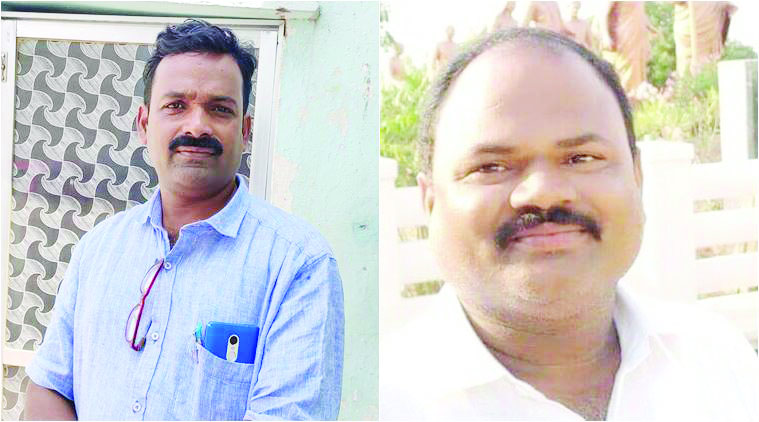WORSE: Even verse is not tolerated by the Thanedars who under the instruction of their political masters are arresting poets for sedition
Tavleen Singh’s who has been the staunch supporters of BJP has deplored the misuse of the Sedition Law and pointed out that it is the only safety valve in a democracy
At a time when dissent is being equated with sedition by too many of our political leaders it was wonderful to hear Justice Dhananjaya Chandrachud on the subject last week. While delivering the 15th Justice P D Desai Memorial Lecture at the Gujarat High Court, he described dissent as the ‘safety valve’ of democracy. Then in an article that appeared in The Times of India, he had this to say. “The silencing of dissent and the generation of fear in the minds of people go beyond the violation of personal liberty and a commitment to constitutional values — it strikes at the heart of a dialogue-based democratic society which accords to every individual equal respect and consideration.”
The Supreme Court judge’s words come as a warning. They are particularly important today when those who took to the streets in Uttar Pradesh to express their dissent against what they consider a bad law have been subjected to huge fines and the confiscation of their property. How better to crush dissent than to cause economic harm to people who are being identified by facial recognition in crowds of protesters? How better to crush dissent than to start arresting actresses and poets for being seen at protests?
Students protesting on campuses have been charged with sedition and the ladies of Shaheen Bagh have been treated as traitors. With the campaign for Delhi now ended, there should be no reason for this to happen, but on a daily basis we see BJP spokesmen on television charging them with working at the behest of Pakistan. This kind of talk seems to have the blessings of powerful leaders. These leaders appear to believe that democracy is limited to winning elections.
Having said this, I believe it is important to remember that the infrastructure for this kind of repression has existed since India became a modern nation. The reason why it is important to keep this in mind is because there are too many retired officials and former ministers who have been making smug pronouncements that they have no right to be making. If in those long decades of supposedly liberal Congress rule repressive laws imposed on us by our colonial masters had been thrown into the trash can of bad laws, we would perhaps not found ourselves in the situation we are in today.
It is not a good situation. Journalists who dare to disagree with a government policy find themselves targeted. And, this has resulted in some private TV channels sounding more loyal to the king than Doordarshan used to. One of the first rules of journalism is that the relationship between the media and government is fundamentally adversarial, but it is a rule that too many of my compatriots appear to have forgotten. Some of them have started to sound like government spokesmen and this is truly scary.
Businessmen are afraid to speak because they risk being raided if they dissent with the government’s policies. Once more it is important to remember that the machinery to destroy businesses through raids and regulations was created under ‘liberal’ Congress prime ministers. It should have been dismantled when the licence raj was dismantled but somehow never was. Since Narendra Modi likes to repeat that he wants to create an economic atmosphere in which there is ‘ease of doing business’, he needs to ask himself why he has taken no steps to end the raids and regulations that strangle private enterprise. If totalitarian, communist China can dismantle these things, why not democratic India?
Why does the Indian State still have in place the tools to crush dissent both in the arena of politics and business? These are questions that we have almost stopped asking in the past few months because of the growing atmosphere of illiberalism. And, because of a nasty kind of ‘nationalism’ that seeks to make everyone speak in one voice.
Once more the words of Justice Chandrachud come to mind. He says, ‘Homogeneity is not the defining feature of Indianness. Our differences are not our weakness. Our ability to transcend these differences in recognition of our shared humanity is the source of our strength. Pluralism should thrive not only because it inheres in the vision of the Constitution, but also because of its inherent value in nation building.’
In recent months there have been too many attempts to impose homogeneity on a country that has never had it. These have usually taken the form of testing people’s patriotism by asking them to say ‘Bharat Mata ki Jai’. And, testing people’s religious loyalties by ordering them to say ‘Jai Shri Ram’ or risk being called a traitor or getting beaten to death.
If there has been dissidence against the amendment to the citizenship law, it is because of this kind of ugly nationalism. Those who have taken to the streets have been mostly Muslims because they know that this aggressive nationalism is directed mostly towards them. They know that Hindus will not be asked to prove their Indianness. Only they will.
So thank you Justice Chandrachud for speaking up for dissent and for reminding us that India has always been a liberal democracy and hopefully will always be. Dissent is truly the ‘safety valve’ of democratic countries.
Courtesy: Indian Express
